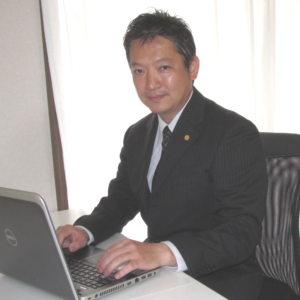What age does “未成年” refer to in the residency notice?

Some of the residency statuses for “Permanent Residents" require being a “minor."
Among the status of residency “Permanent Residents," the following conditions require being a “minor." First, let’s excerpt the residency notice.
VI. Those falling under any of the following (excluding those falling under items 1 to 4 or item 8).
A. Minors who are unmarried children of Japanese nationals, holders of permanent resident status residing with a special permanent resident as defined in the Special Law concerning Immigration Control and other related matters (Law No. 71 of 1981), or others who have renounced Japanese nationality based on a peace treaty with Japan.
B. Minors who are unmarried children of those residing with a designated residency period of one year or more as Permanent Residents (excluding those who have been granted landing permission, permission for change of residency status, or permission for acquisition of residency status as those listed in items 3, 4, or preceding item A).
C. Minors who are unmarried children of those who have been granted landing permission, permission for change of residency status, or permission for acquisition of residency status as those listed in items 3, 4, or preceding item B, and who have been designated a residency period of one year or more as Permanent Residents, and whose behavior is good.
D. Minors who are unmarried children of Japanese nationals, holders of permanent resident status, special permanent residents, or those who have been granted landing permission, permission for change of residency status, or permission for acquisition of residency status as those listed in items 3, 4, or preceding item B, and who receive support from a spouse who is a Japanese national or a spouse who holds residency status as a permanent resident, etc.
These are referred to as “Residency Notice No. 6," and since it’s a bit difficult to understand even after reading it, let’s simplify it.
What does “minor" mean in this context?
The issue here is the term “minor." As you may know, the legal age of adulthood in Japan is 20 years old, and it has been 18 years old since April 2022. However, in many countries excluding Japan, the legal adulthood age is 18 years old.
Regarding this, the Immigration Bureau treats “20 years old and above" as adults. In other words, the concept of “minor" and “adult" as defined by Japanese law is applied.
If that were the end of the story, it would be simple. However, in practice, if one were to ask whether a person aged 18 or 19 could obtain a “Permanent Resident" visa, the answer is no.
“Minor" means “child"
What’s noteworthy here is the inclusion of the term “receiving support." This implies someone who cannot live independently, in other words, a “child." This “child" is not used in the sense of “your child" or “how old is your child?" but rather in contrast to “adult" or “child."
In this sense, rephrasing the notice, it means “unmarried children who cannot live without parental support." Therefore, it becomes exceedingly difficult to justify calling for an 18 or 19-year-old who has been left in their home country after graduating from high school to come to Japan.
Firstly, one must thoroughly explain why they have not called them until now, the reasons why there have been no hindrances in supporting them without calling them, and the reasons why they must be supported in Japan in the future. Without a clear explanation, it seems unlikely to obtain a “Permanent Resident" visa. In fact, in most cases, providing a rational explanation is deemed difficult.
Calling your child as soon as possible increases the likelihood of obtaining a “Permanent Resident" visa
If you wish to call your child to Japan, rather than leaving your child in your home country for many years, it is advisable to call them immediately after obtaining a visa such as “spouse of a Japanese national," “spouse of a permanent resident," or “Permanent Resident." In such cases, there may be a slight possibility of obtaining a “Permanent Resident" visa even at the age of 17 or 18.








